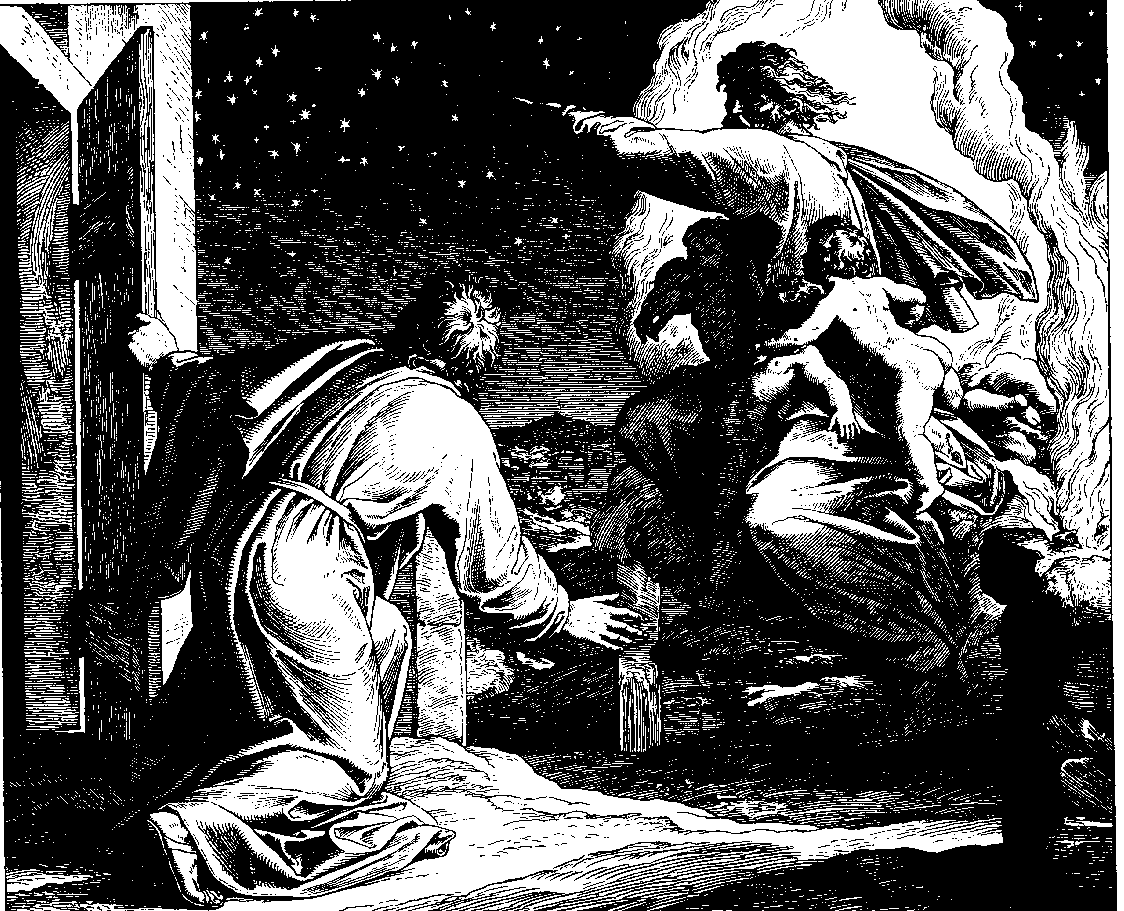Charran on:
[Wikipedia]
[Google]
[Amazon]
 The ruins of the city of Harran, called Haran ( he, חָרָן, ''Ḥārān'') in the Hebrew Bible, might lie within present-day Turkey. Haran first appears in the Book of Genesis as the home of Terah and his descendants, and as Abraham's temporary home. Later biblical passages list Haran among some cities and lands subjugated by Assyrian rulers and among Tyre's trading partners.
The ruins of the city of Harran, called Haran ( he, חָרָן, ''Ḥārān'') in the Hebrew Bible, might lie within present-day Turkey. Haran first appears in the Book of Genesis as the home of Terah and his descendants, and as Abraham's temporary home. Later biblical passages list Haran among some cities and lands subjugated by Assyrian rulers and among Tyre's trading partners.
 The ruins of the city of Harran, called Haran ( he, חָרָן, ''Ḥārān'') in the Hebrew Bible, might lie within present-day Turkey. Haran first appears in the Book of Genesis as the home of Terah and his descendants, and as Abraham's temporary home. Later biblical passages list Haran among some cities and lands subjugated by Assyrian rulers and among Tyre's trading partners.
The ruins of the city of Harran, called Haran ( he, חָרָן, ''Ḥārān'') in the Hebrew Bible, might lie within present-day Turkey. Haran first appears in the Book of Genesis as the home of Terah and his descendants, and as Abraham's temporary home. Later biblical passages list Haran among some cities and lands subjugated by Assyrian rulers and among Tyre's trading partners.
Name
Although the placename can be found in English as ''Haran'', ''Charan'', and ''Charran'', it should not be confused with the personal name ''Haran
Haran or Aran ( he, הָרָן ''Hārān'') is a man in the Book of Genesis in the Hebrew Bible. He died in Ur of the Chaldees, was a son of Terah, and brother of Abraham. Through his son Lot, Haran was the ancestor of the Moabites and Ammonite ...
'', borne by Abram's brother, among others. The biblical placename is (with a ''ḥet'') in Hebrew, pronounced and can mean "parched," but is more likely to mean "road" or "crossroad," cognate to Old Babylonian ḫaranu (MSL 09, 124-137 r ii 54'). The personal name ''Haran'' is spelled (with a ''hei'') in Hebrew and means "mountaineer".
Identification
Haran is usually identified with Harran, now a village of Şanlıurfa, Turkey. Since the 1950s, archeological excavations of Harran have been conducted, which have yielded insufficient discoveries about the site's pre-medieval history or of its supposed patriarchal age. The earliest records of Harran come from the Ebla tablets, c. 2300 BC. Harran's name is said to be fromAkkadian Akkadian or Accadian may refer to:
* Akkadians, inhabitants of the Akkadian Empire
* Akkadian language, an extinct Eastern Semitic language
* Akkadian literature, literature in this language
* Akkadian cuneiform
Cuneiform is a logo- syllabi ...
''ḫarrānum'' (fem.), "road"; ''ḫarrānātum'' (pl.).
Biblical mentions
According to the Hebrew Bible, Haran was the place where Terah settled with his son Abraham (at that time called Abram), his grandsonLot
Lot or LOT or The Lot or ''similar'' may refer to:
Common meanings Areas
* Land lot, an area of land
* Parking lot, for automobiles
*Backlot, in movie production
Sets of items
*Lot number, in batch production
*Lot, a set of goods for sale togethe ...
, and Abram's wife Sarah
Sarah (born Sarai) is a biblical matriarch and prophetess, a major figure in Abrahamic religions. While different Abrahamic faiths portray her differently, Judaism, Christianity, and Islam all depict her character similarly, as that of a piou ...
(at that time known as Sarai) during their planned journey from Ur Kaśdim ( Ur of the Chaldees) to the Land of Canaan. The region of Haran is referred to variously as Paddan Aram and Aram-Naharaim. Abram lived there until he was 75 years old before continuing on to Canaan, in response to the command of God. Although Abram's nephew Lot accompanied him to Canaan, Terah and his other descendants remained in Paddan-Aram,. In Genesis 28:10–19, Abraham's grandson Jacob left Beersheba and went toward Haran. Along the way he had his dream of Jacob's Ladder.
In 2 Kings
The Book of Kings (, '' Sēfer Məlāḵīm'') is a book in the Hebrew Bible, found as two books (1–2 Kings) in the Old Testament of the Christian Bible. It concludes the Deuteronomistic history, a history of Israel also including the books ...
(19:12) and Isaiah (37:12) Haran reappears in the late 8th to early 7th century BC context of the Neo-Assyrian Empire's conquests. It appears again in the Book of Ezekiel (27:23) as a former trading partner of the Phoenician city Tyre. In the New Testament, Haran is mentioned in the Acts of the Apostles
The Acts of the Apostles ( grc-koi, Πράξεις Ἀποστόλων, ''Práxeis Apostólōn''; la, Actūs Apostolōrum) is the fifth book of the New Testament; it tells of the founding of the Christian Church and the spread of its messag ...
(7:2–4), in a recounting of the story in Genesis wherein it first appears.
See also
* SabiansReferences
External links
* {{Cite NIE, wstitle=Haran, short=x Hebrew Bible words and phrases Book of Genesis Torah cities Harran